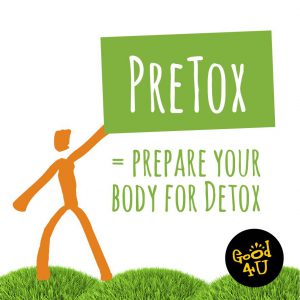Brave new words
Words are all around us. And there are a lot of them out there! The Oxford English Dictionary contains full entries for over 170,000 words in current use and over 47,000 obsolete words. Yet, surprisingly, the Economist newspaper reports that most adult native speakers only have a vocabulary of between 20,000–35,000 words. Defining precisely what we mean by a ‘word’ is no mean feat, of course, but even so there is a huge chasm between these two figures.
So, if speakers of English typically know between 12 and 20% of the words recorded in the OED, one might understandably assume that there really wouldn’t be any need to go about creating new ones. Yet barely a day goes by when we don’t encounter a new word in some form or another, whether that be a word that is eventually fully adopted into the language, an ‘incorrect’ word, or even a one-time use word created on the spur of the moment, perhaps for comic effect.
But when we hear a new word for the first time, how are we supposed to know what it means?
Well, this partly depends on how the new word was formed. If the new word is a ‘blend’, then the meaning of the new word might be easily recoverable from its component parts, particularly if aided by context. For instance, the meaning of hangry (angry or frustrated due to hunger) would be quite transparent in ‘We ordered our food over an hour ago. What’s going on? I’m beginning to feel really hangry’, even if you’d never come across the word before. (NB. Given the findings in a hot-off-the-press article from less than a month ago, however, it would appear that the concept of hangriness is a little more involved that the component words might suggest!)

In a similar vein, when a work colleague, who often takes the same train to work as me, suggested that we should trainstorm ideas during our commute, both the activity and the location were neatly conveyed in a single word that I immediately understood, despite the fact that I’d never heard it before and may never hear it again.
Likewise, if the word you’re hearing for the first time follows the general rules of the language, then it is usually a straightforward task to understand what is really meant. This scenario certainly applies when interpreting child language, which often follows language-internal rules even where they should be overridden by irregular forms, e.g. I goed to the shop and buyed a toy). This was illustrated fairly recently by my three-year-old daughter who, after lining up all her soft toy animals on the edge of her bed, proudly announced that she was the petshopper and asked if I would like to buy a pet.
But new words may also ‘break the rules’ as it were, and still be easy for us to interpret, perhaps by analogy with another similar word. At some point in time, in the not too distant past, what I presume must have been a well-paid marketing team came up with the notion of sun-blushed tomatoes. It’s a wonderful word which conveys a sense of sweetness from having been sat in the sun for a while, but a juiciness from not having been dried out in the same way as sun-dried tomatoes (compare the two images below – I know which ones I would prefer!). However, the verb to blush is intransitive, which means it shouldn’t be allowed to take an object. We can say ‘the sun dried the tomatoes’, but we can’t say ‘the sun blushed the tomatoes’ (and perhaps this is why the term ‘sunblush’ is also quite common nowadays). But by analogy to things that have been sun-dried or, more poetically, sun-kissed, it just works.

And if you’re Nigella, of course, you might take this process one step further and come up with your own recipe for moonblush tomatoes. These are tomatoes that have been cooked overnight (hence the reference to the moon) in the residual heat of a cooling oven (NB. there are no known cases of anyone having successfully used this method of cooking tomatoes prior to sundown). Google the term ‘moonblush’ and you’ll get 174,000 hits, a vast number of which will reference Nigella Lawson in some way, showing just how unique the word is!
Yet another category of new words are those which, on the surface, appear to follow some rule of word formation in the language, but actually leave you scratching your head when you encounter them for the first time, wondering what they mean. This scenario is often symptomatic of the word having been purposefully coined by someone, say for marketing purposes, who didn’t foresee the potential confusion.

On a recent trip to a DIY store, I spotted big bags of postcrete. Since I wasn’t there to buy said product, I could have just ignored it, but as a linguist I am, unfortunately, subject to the occupational hazard of being unable to go about my daily life without questioning such things. I realised it had something to do with concrete, for obvious reasons – well, I suppose it could have been somehow related to Crete – and so began thinking to myself ‘I wonder what is used before that?’ I’d assumed the post part of the word was being used as a prefix indicating ‘after in time or in order’. Only later did I learn it was a special fast-setting concrete for bedding in fence posts!

Similar confusion ensued when a colleague saw an advertisement which said “why detox, when you can pretox?” Presumably by analogy with detox, itself a relatively new word meaning the removal of toxins from one’s body, it did at first glance seem like the advert was recommending the opposite, i.e. to add toxins to one’s body. Using pretox as a verb probably contributed to the confusion, since words beginning with pre in English are almost invariably verbs meaning do x prior to something else (e.g. precook, preboard, prebook).
Finally, there will always be new words that we have never heard before and whose meaning we are unable to deduce from our existing knowledge of the language. I experienced this just two days ago when the word peng was mentioned in a TV commercial. Fortunately, in this digital age, those of us who are more chronologically gifted than secondary school pupils have the Urban Dictionary on hand to help out.
So, while new words may arise for all manner of reasons and in all manner of contexts, perhaps the most remarkable thing about them is our (almost) unfailing capacity to understand them despite never having heard them uttered before.
One thought on “Brave new words”
Though context is everything, as in the following passage from Maximums & specimens of William Muggins (1859):